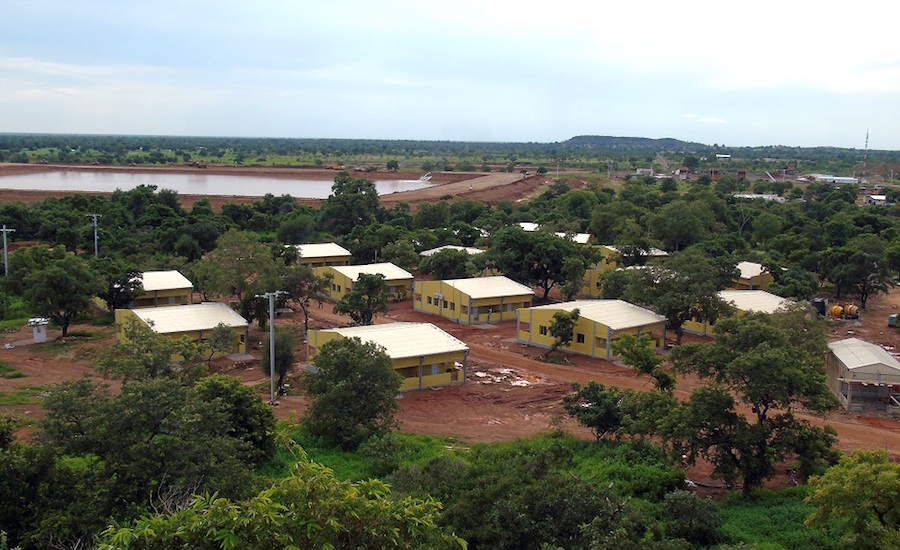
Burkina Faso’s thriving gold mining sector has been rattled by a new wave of Islamist violence and sporadic outbreaks of interethnic conflict.
The industry has been booming in recent years – with Burkina Faso expecting to announce that 2018 was its most successful year for gold production – but could the latest outbreak of Islamic militancy prove an insurmountable challenge for the country’s resilient mining investors?
On January 11 the country’s parliament voted to extend a state of emergency in several northern provinces, which has been in place since December 31, by six months – following a string of terrorist incidents in several northern provinces, including one recent attack carried out by dozens of jihadists which left 12 people dead. Then, on Tuesday this week, a Canadian geologist, Kirk Woodman, was found dead after being abducted by unknown gunmen.
For years Burkina Faso was able to avoid the kind of Islamic extremism that has affected regional neighbours such as Mali and Nigeria. But following the resignation of President Blaise Compaore in 2014 and the subsequent weakening of the Burkinabe army, there have been over 80 terrorist incidents in northern parts of the country and several high-profile attacks in its capital, Ouagadougou.
The Burkina Faso government has extended by six months a state of emergency in place since Dec. 31 due to an increase in the number of attacks by Islamic extremist groups.
The identity and origin of the Islamic extremists believed to be responsible for the violence remains largely unclear. There is speculation in Burkina Faso that some of the attacks, many of which have not been claimed by any group, could be linked to disgruntled former members of the military sacked in two separate purges, who have built up ties with militant groups operating in the region.
A number of countries, including Canada, the US and the UK, have issued travel warnings. Canada has the largest number of foreign gold companies operating in Burkina Faso, and Woodman was an employee of a Vancouver-based explorer called Progress Minerals.
This isn’t the first time a foreign mining company active in Burkina Faso has been affected by the spike in terror-related incidents. In September 2017 a convoy carrying fuel to the Inata mine, a gold deposit in the north that was being developed by London-listed Avocet Mining, was attacked by unknown assailants, leaving two policemen dead. Last year, Semafo, one of Canada’s largest gold miners, experienced no fewer than three deadly attacks in the space of four months.
Alaco understands that the violence has led a number of companies operating in Burkina Faso to consider their options going forward.
Burkina Faso has experienced something of a gold rush over the past decade, with exploitation of the resource playing a key part in driving economic growth in recent years. The government expects to announce that a record 55 tonnes of gold was mined in 2018 – an increase of two-thirds on five years ago – which would put the country on a par with Africa’s third largest gold producer, Mali. In terms of exploration investment, Burkina Faso is second only to the DRC in Africa.
In a recent interview, Burkinabe Mining Minister Idani Oumarou said that $100 million had been invested by companies seeking to explore gold prospects in Burkina Faso. The government typically retains 10% ownership of these mines, although it also benefits from various royalties and taxes imposed on foreign companies.
The first signs of trouble for the mining industry came three years ago. In April 2015, a Romanian security officer working at a mine in the north was kidnapped. That same year, an interim government led by Michel Kafando was briefly ousted following a coup led by Compaore allies, impacting the share price of various foreign miners. Confidence took a further hit when Credit Suisse withdrew from a financing agreement with another Canadian miner, Roxgold. It wasn’t entirely clear why it did so, with some speculating the move stemmed from the coup.
While the country’s foreign miners survived these setbacks and continued to prosper, the gathering threat from Islamic militants appears to have caused at least some to wonder whether the rewards of forging ahead with their operations sufficiently outweigh the risk of what may turn out to be considerable disruption.
(By Oliver Radway, analyst at Alaco, a London-based business intelligence consultancy.)